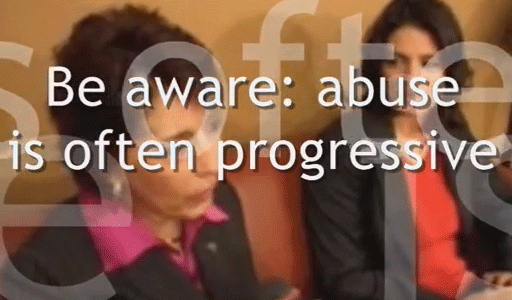
Q&A: Teen Dating Violence
Dr. Richeson from Jennifer Ann's Group discusses teen dating violence with The Morning Show.
Learn more about Teen Dating Violence and domestic violence with these videos, banners, widgets, games, and more.
Please share these teen dating violence resources with young people, educators, and parents in your life.
Watch and share these videos about dating violence affecting teens, tweens, and young adults.

Dr. Richeson from Jennifer Ann's Group discusses teen dating violence with The Morning Show.
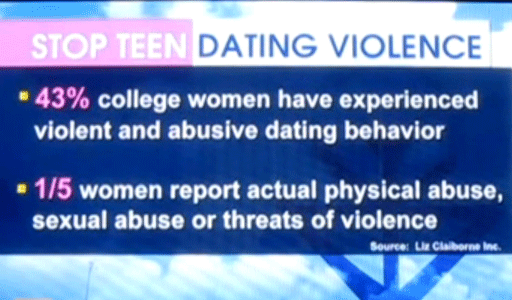
Drew Crecente from Jennifer Ann's Group discusses teen dating violence with Christi Paul of HLN.
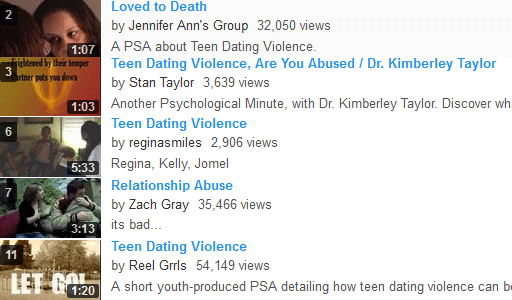
Playlist of dozens of educational videos about teen dating violence.
Play and share these award-winning video games now!
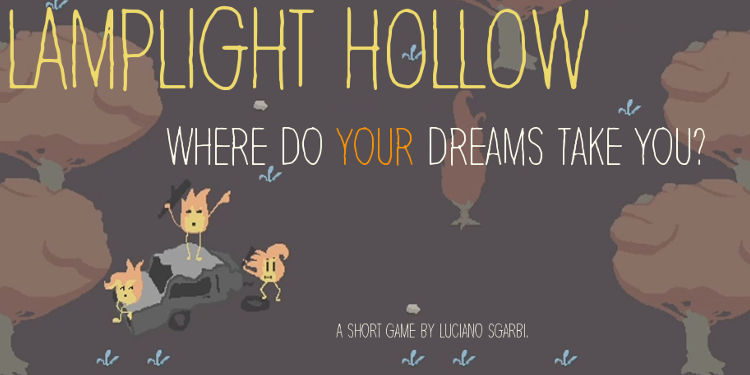
Luciano Sgarbi • UK
Join this dreamer as they undertake a journey through their dreams -- exploring the unexplored, examining the unexamined, and befriending the not-always-friendly.
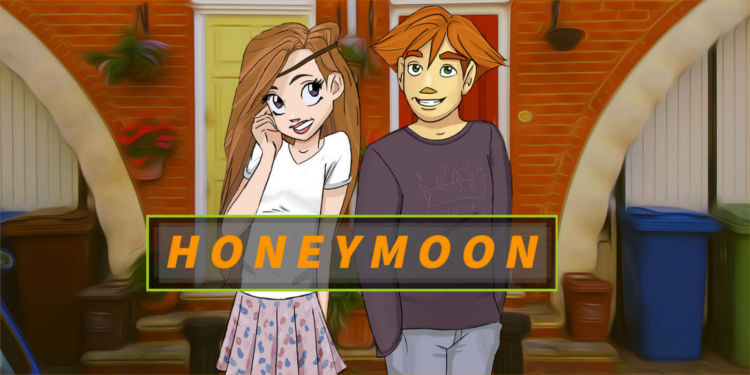
Sandra Lara Castillo • UK
In HONEYMOON, players explore a dating relationship through the experiences of a student. As the game progresses and the “honeymoon” period ends, the player experiences some of the potential challenges found in adolescent dating relationships and also sees how the evolving relationship impacts friends and family.
Print these educational resources at home, school, or the office and share this important information about teen dating violence.
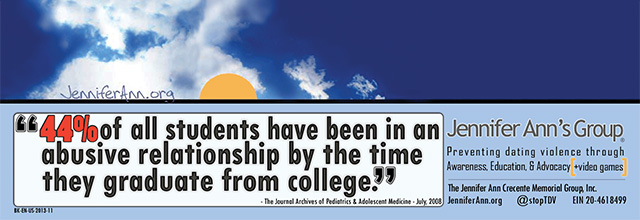
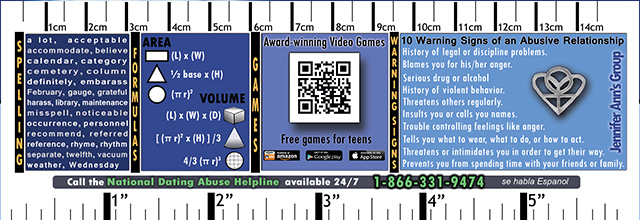
These bookmarks to #stopTDV are now available for download so that you can print them at school, home, or the office.
The front of the bookmarks has a reminder of the prevalence of dating abuse, with the statistic that 44% of all college students have been in an abusive relationship by the time they graduate from college.
The back of the bookmarks has a ruler, a list of commonly misspelled words, math forumulas for area and volume, a scannable QR code providing access to teen dating violence video games, the ten warning signs of an abusive relationship, and the phone number for the National Dating Abuse Helpline.
Just click on each image to download the high-resolution PDF images for easy printing. Printed size is 6.13" x 2.13".
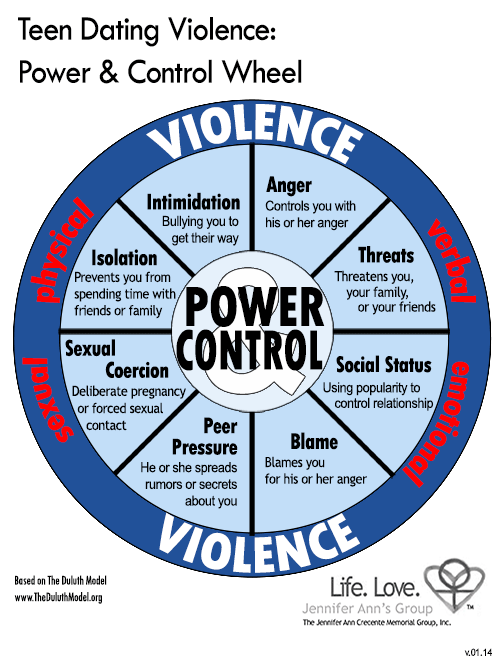
This Power and Control Wheel about teen dating violence is based on the Duluth Model.
The original Power and Control Wheel was developed in the 1980's to visually represent the systematic abuse found in domestic violence or intimate partner violence. The Teen Dating Violence Power and Control Wheel has modified the original wheel to better reflect how power and control is used in teen dating violence relationships.
Just click on the power and control wheel image to download the high-resolution PDF image for easy printing. Printed size is 8.5" x 11".
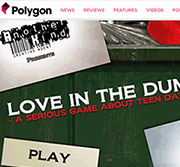
The sixth annual Life. Love. Game Design Challenge,
aimed at increasing awareness of teen dating violence, has announced its winning entries.
Overall winner is Love in the Dumpster by Jean Hehn of Belgium,
followed by Janie's Sketchbook by Guts Rodsavas and Piti Yindee of GPTouch in Thailand.
In third place is YourSpace by Paul McGee,
Sam Gross, Lyndsey Moulds, Ross McWilliam and Kayfaraday in Ireland
followed by What Kind of Monster is your Boyfriend? by 99Uno in Argentina.
Read the full article at Polygon
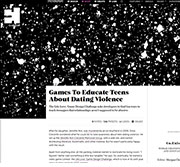
The Life.Love. Game Design Challenge asks developers
to find fun ways to teach teenagers that relationships aren’t supposed to be abusive.
Read the full article at Co.Exist
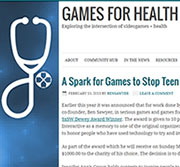
Earlier this year it was announced that for work done by Games for Health Project co-founder,
Ben Sawyer, in serious games and games for health that he will be a SxSW Dewey Award Winner.
The award is given to 10 people each year by SxSW Interactive as a memory
to one of the original organizers of the event, Dewey Winburne.
It is used to honor people who have used technology to try and improve the lives of others.
As part of the award which he will receive on Sunday March 10 in Austin SxSW is donating $1000.00
to the charity of his choice. The decision is to donate the funds to Jennifer Ann’s Group.
Read the full article at Games for Health

According to a 2009 study by the CDC, 10% of teens report having been physically abused within the past year by a dating partner. By the time students have graduated from college 44% of them will have been in an abusive relationship.
Technology is often leveraged against people in abusive relationships and because teenagers and college students are heavy users of technology they are disproportionately affected by these abusive practices. According to a 2007 study 67% of teens own cell phones, 93% use the internet, and nearly half visit social networking sites daily . . .